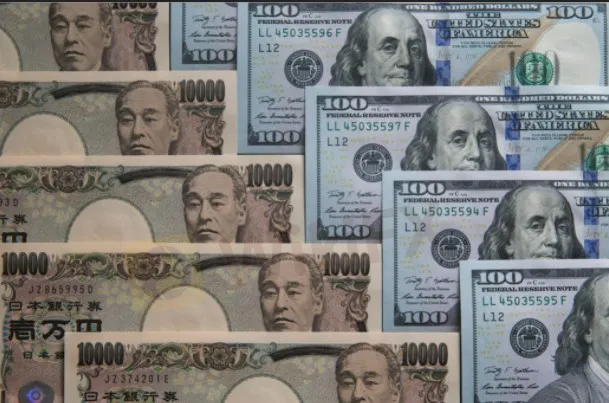TP ICAP Expands Global Reach with Acquisition of Vantage Capital Markets
TP ICAP reaches acquisition agreement to acquire Vantage Capital Markets, aiming to strengthen its position in equity derivatives and fixed income.
简体中文
繁體中文
English
Pусский
日本語
ภาษาไทย
Tiếng Việt
Bahasa Indonesia
Español
हिन्दी
Filippiiniläinen
Français
Deutsch
Português
Türkçe
한국어
العربية
Abstract:WHEN DID JAPAN LAST CONDUCT YEN-BUYING INTERVENTION?
TOKYO : Japanese policymakers escalated their warning against sharp yen falls, with the country's top currency diplomat saying Tokyo and Washington agreed to “communicate closely” on currencies as the world's third-biggest economy struggled to regain its footing.
Vice finance minister for international affairs Masato Kanda said “excess volatility and disorderly” currency moves were undesirable, signalling Tokyo's displeasure over the yen's steep slide to six-year lows versus the dollar.
Aside from such verbal intervention, Japan has several options to stem excessive yen falls. Among them is to directly intervene in the currency market and buy up large amounts of yen.
Below are details on how yen-buying intervention could work, the likelihood of this happening as well as challenges:
WHEN DID JAPAN LAST CONDUCT YEN-BUYING INTERVENTION?
Given the economy's heavy reliance on exports, Japan has historically focused on arresting sharp yen rises and taken a hands-off approach on yen falls.
Yen-buying intervention has been very rare. The last time Japan intervened to support its currency was in 1998, when the Asian financial crisis triggered a yen sell-off and a rapid capital outflow from the region. Before that, Tokyo intervened to counter yen falls in 1991-1992.
WHAT WOULD PROMPT TOKYO TO BUY YEN AGAIN?
Currency intervention is costly and could easily fail given the difficulty of influencing its value in the huge global foreign exchange market.
That is one key reason it is considered a last-resort move, which Tokyo would greenlight only when verbal intervention fails to prevent a free fall in the yen. The speed of yen declines, not just levels, would be crucial in authorities' decision on whether and when to step in.
Former top currency diplomat Eisuke Sakakibara told Reuters a yen fall below 130 to the dollar could be the trigger for intervention.
Some policymakers say intervention would only become an option if Japan faces a “triple” selling of yen, domestic stocks and bonds, in what would be similar to sharp capital outflows experienced in some emerging economies.
HOW WOULD IT WORK?
When Japan intervenes to stem yen rises, the Ministry of Finance issues short-term bills to raise yen which it can then sell in the market to weaken the Japanese currency's value.
If it were to conduct intervention to stop yen falls, authorities must tap Japan's foreign reserves for dollars to sell in the market in exchange for yen.
In both cases, the finance minister will issue the final order to intervene. The Bank of Japan will act as an agent and execute the order in the market.
WHAT ARE THE CHALLENGES?
Yen-buying intervention is more difficult than yen-selling.
To conduct dollar-selling, yen-buying intervention, Japan must tap its foreign reserves for dollars it can sell to markets in exchange for yen.
That means there are limits to how long it can keep intervening, unlike for yen-selling intervention - where Tokyo can continue issuing bills to raise yen.
Japan's foreign reserves stood at $1.38 trillion, which is the second largest after China's and likely consisted mostly of dollars. While abundant, the size could quickly dwindle if huge sums are required to influence rates each time Tokyo steps in.
Currency intervention would also require informal consent by Japan's G7 counterparts, notably the United States if it were to be conducted against the dollar/yen. That is not easy with Washington traditionally opposed to the idea of currency intervention, except in cases of extreme market volatility.

Disclaimer:
The views in this article only represent the author's personal views, and do not constitute investment advice on this platform. This platform does not guarantee the accuracy, completeness and timeliness of the information in the article, and will not be liable for any loss caused by the use of or reliance on the information in the article.

TP ICAP reaches acquisition agreement to acquire Vantage Capital Markets, aiming to strengthen its position in equity derivatives and fixed income.

FIBO Group has grabbed attention from traders for mostly the wrong reasons, as traders have accused the broker of causing financial losses using malicious tactics. Whether it is about withdrawal access, deposit disappearance, trade manipulation, or awful customer support service, the broker is receiving flak from traders on all aspects online. Our team accumulated a list of complaints against the FIBO Group broker. Let’s screen these with us in this FIBO Group review article.

Do you have to pay taxes or margin when seeking fund withdrawals from GMO-Z.com, a Thailand-based forex broker? Do you witness heavy slippage when trading on the broker’s platform? These are some complaints traders have made against the broker. In this GMO-Z.com review article, we have explained these complaints. Take a look!

EOBroker Review shows a low WikiFX score of 1.33/10. No regulation, fake license, and unsafe trading make this broker dangerous.
